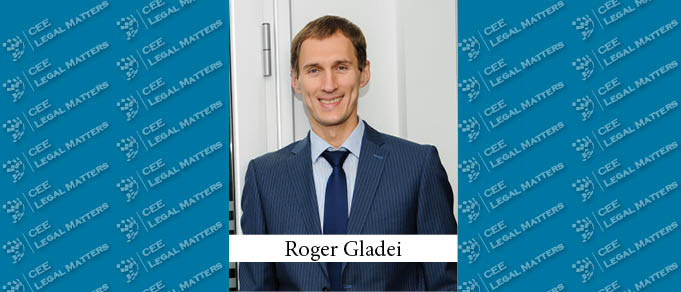My Indian guru, a sine-qua-non vegetarian, adores the Moldovan pies (placinte poale-n brau) made by my mom. When back home in India he will definitely once again become a chapati devotee, but for now he is in Chisinau, enjoying the taste and flavor of my mom’s baking.
Recently I realized that our firm has more “best friend” law firms than corporate clients. Built on trust rather than formal arrangements, this kind of relationship seems to be a win-win-win, bringing benefits to the client, who feel safe in unknown territories; to our peer law firm, who may thus provide added value to the client; and to ourselves. And it’s a veritable knowledge-sharing and technology-spillover engine, as the legal know-how is not patentable and each new client can enjoy the benefits of our work for previous outstanding law firms or clients.
It was not always like that. In the mid-90s the big law firms, including those in the Magic Circle who had already conquered other Eastern territories out of the bricks from the Berlin Wall, attempted to put their best foot forward in a Moldovan blitzkrieg. The first crisis, in 1998, put a damper on that enthusiasm, and the 2008 financial crisis put a final shape to the landscape of Moldova’s legal market. Foreign law firms with a local presence are now few and far between, and the model of exclusive relationship, with a foreign law firm getting married to a Moldovan partner, is dead.
I’d summarize the lessons learned from more-than-a-decade of best-friends agreements with various foreign – mostly EU and US – law firms, thus:
1. We speak the same language. No, I’m not referring to English, even if now professional English is a must. I’m referring to the way we think and act. In a recent kick-off call for a new capital markets project I counted more than 50 attendees from around the globe, and you may not have more than a couple of minutes to articulate your Moldovan law view, so be ready!
2. There is no small and big; it’s merit-based. Never, in all these years, have I ever felt an arrogant or big brother approach from DC, London, or Moscow. It seems that the rules of politics are out of work in the legal brotherhood.
3. Guanxi is out of the picture. It may be nice to socialize a bit, or a bit more, before embarking onto a new cross-border project, but in practice it’s more often that you’ll get an email late at night (well, it’s just mid-day in DC) asking for a prompt reply. Guys, haven’t you heard about time zones? No, you hold your tongue and burn the midnight oil to deliver on time, then you can turn back to shaping your “work smart, don’t work hard” model.
4. Trust works better than formal arrangements. If you make an error, your best friend will most probably come to your rescue, but if you insist on failing, don’t blame the mirror. Clients don’t rely on marketing slogans as much as references. It’s a kind of a reputation-spillover: the client trusts the home counsel, and the latter trusts you, so you don’t need to provide credentials and long lists of previous projects to the clients. It’s all in.
5. Partnerships are the future. The world is becoming less proprietary, and brand loyalty is fading away. In Moldova, at least, the client’s choice is not driven by years of service and aristocratic pictures on marble background, but by word of mouth. If you’ve advised on all three of the three M&A deals shortlisted for the 2020 Deal of the Year Award for Moldova (it may not sound too modest, but it’s true), then why would a Magic or Silver Circle firm looking for local assistance not turn to you, if it wants to serve its client best?
My mom’s pies will remain sought after, I am confident. I might turn up my nose at them, looking for a pizza, but my guru feels in his bones what’s healthy.
By Roger Gladei, Managing Partner, Gladei & Partners
This Article was originally published in Issue 8.5 of the CEE Legal Matters Magazine. If you would like to receive a hard copy of the magazine, you can subscribe here.

















